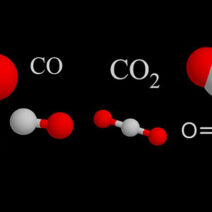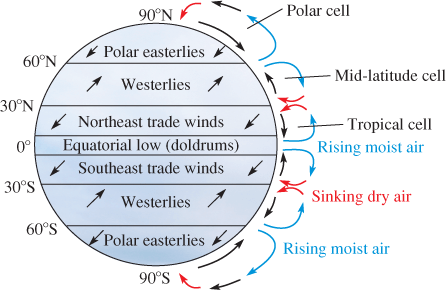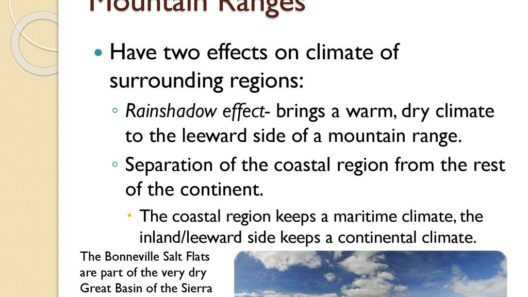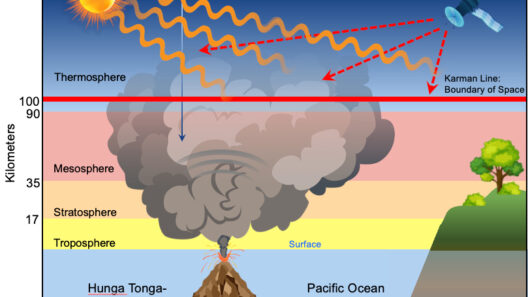As we navigate the tumultuous waters of modern discourse, the question looms, casting a long shadow: Is climate change merely a hoax? This notion pervades public consciousness, often influenced by misinformation and skepticism. However, like sails catching the wind, the overwhelming consensus among scientists propels forward the unassailable reality of climate change. In this exploration, we will unravel some of the most pervasive myths surrounding this critical issue, illuminating the essence of climate change and its implications for life on Earth.
One common myth suggests that climate change is just a natural cycle of the Earth. Proponents of this view argue that the planet has undergone cataclysmic shifts over millennia without human intervention. While it is true that the Earth has experienced fluctuations in climate, these transitions occurred over vast temporal spans, shaped by factors such as solar irradiance and volcanic activity. The present situation, however, is markedly different. The current rate of warming is unprecedented, characterized by a steep trajectory that aligns closely with the industrial age. The burden of evidence points to anthropogenic factors—chiefly greenhouse gas emissions from burning fossil fuels—as the principal drivers of contemporary climate change.
Another fallacy lies in the belief that climate change impacts are exaggerated or fabricated by scientists or policymakers. Critics often dismiss climate reports as alarmist or misleading, asserting that predictions of doom and gloom are tools of manipulation. However, the scientific community operates on rigorous peer-reviewed research, employing multifaceted models to project future conditions. Climate data—ranging from ice core samples to satellite imagery—furnishes insights into atmospheric changes that contradict claims of embellishment. Genuine concern arises not from sensationalism but from the sober acknowledgment of escalating risks, including rising sea levels, more frequent natural disasters, and biodiversity loss.
Moreover, some individuals contend that climate change is inconsequential, believing that humanity will adapt to any changes. This viewpoint betrays a stunning lack of forethought. While human ingenuity has indeed facilitated remarkable adaptations, the scale of disruption foreshadows severe repercussions. Coral reefs, the vibrant undersea metropolises, are already experiencing mass bleaching—a phenomenon driven by warming oceans. The extinction of species and degradation of ecosystems cannot be reversed through mere adaptability; it requires proactive measures and the recognition of interconnected systems within nature.
One commonly circulated myth asserts that renewable energy sources cannot adequately replace fossil fuels, thereby rendering the transition to a low-carbon economy infeasible. Detractors argue that wind and solar power are intermittent and unreliable. Yet, advancements in technology have surmounted many of these challenges. Energy storage solutions, such as batteries and pumped hydroelectric systems, provide the necessary grid stability. As wind and solar energy become increasingly cost-competitive, nations worldwide are making strides toward a renewable future. This transition not only mitigates climate change but also fosters energy independence and job creation, echoing the ancient adage: “Where there’s a will, there’s a way.”
Another myth envelops the idea that climate change is solely a future problem. The idea that “we will address it later” feels comfortable but is inherently deceptive. People may believe they are immune to current effects; however, they increasingly find that climate change is already knocking at their doors. From prolonged droughts to devastation wrought by hurricanes, the present is replete with evidence of climate-related disruptions. The phrase “climate change is not a distant storm; it is the rain that is falling now” aptly illustrates the urgency we face.
Additionally, the myth that climate change primarily affects distant regions is equally pervasive. Individuals frequently disregard the local implications of environmental degradation. Climate change is a global issue, yet its consequences are felt at local levels—agricultural yields diminish, water sources dry, and communities become increasingly vulnerable. Understanding this interconnectedness is fundamental in motivating action. Just as a pebble thrown into a pond creates ripples, so too do the effects of climate change resonate far beyond their origins, influencing ecosystems and economies alike.
As we peel away the layers of misconception, another layer of skepticism emerges—the belief that individual actions are insignificant in the grand scheme. While it is true that collective action is imperative, dismissing personal responsibility undermines the potential for grassroots change. The collective crescendo of individuals opting for sustainable practices—reducing waste, changing consumption patterns, and supporting green policies—can ripple into larger societal shifts. Each deliberate choice sends a message, reinforcing the importance of stewardship over our planet.
In summation, as we confront the myriad myths that shroud climate change in uncertainty, clarity emerges through evidence-based understanding. Climate change is not a hoax; it is the defining challenge of our time, requiring a concerted response from all sectors of society. Dismantling misconceptions fosters informed dialogue and galvanizes action, proving that awareness can serve as the catalyst for change. The journey toward sustainability may be fraught with obstacles, but each step forward fortifies our collective resilience. With informed minds and determined hearts, we can reshape the future and steer our world toward a more sustainable horizon.





